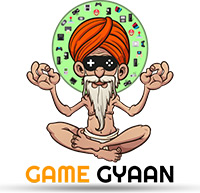Becoming a game tester is a job that most gamers have contemplated or even dreamed of at some point in their lives. Playing games for a living, what’s not to love, right? For most, it’s also seen as a way to get their foot in the door of a big games development studio or publisher. While being a game tester might sound like a fun career with many perks, it’s ultimately a job; one that requires a certain set of skills and personality traits to not only get started but also be successful.
What exactly is a game tester?
The game tester career is often viewed as an endless smorgasbord of playing games and being paid for it, and that’s not completely detached from reality. As the front liners of a game studio’s quality control, game testers spend hours playing several games or even several versions of one game. The purpose is to find any issues, such as bugs and programming errors.
After becoming a game tester, you’re expected to sometimes play the same level for hours until you’ve exhausted all possible states and interactions. Once an issue is discovered, a big part of a game tester’s job is to relay it to the dev team, either through a report or in a meeting.
Game testers are also bound by extremely strict Non-Disclosure Agreements (NDAs). These contracts effectively bar them from talking about the games they’re testing with anyone. For a lot of people in the testing field, this can be an actual pain point. Imagine having your gamer friends badger you over the stuff you want to talk about but can’t.
This is the job of a game tester in a nutshell and it’s definitely not without its perks.
Perks of being a game tester
Pretty much all the perks you’ve imagined the game tester career offers are true to an extent. Obviously, you get to play unreleased games before they’ve even been announced. Aside from the self-satisfaction of being in the know of the gaming industry, you get to slap a big knowing grin on your face during big studio announcements.
What’s more, after becoming a game tester and building your reputation, you’re likely to receive a lot of those titles you’ve tested for free. This can save you quite a bit of that gaming money over time. There have been instances where testers received special editions or even game copies signed by the dev team.
Besides the swag, a game tester has actual access to game developers and can do some serious networking within the industry. This is a particularly big one if you’re serious about making a career out of game testing. A lot of game designers and developers had their humble beginnings as testers.
But it’s not all awesome game rooms and free stuff in a game tester career.
Downsides of becoming a game tester
There are a lot of jobs out there that squeeze long hours out of you with little pay. Testing games is one of them. While the average salary in the US is around $50,000 – with the highest-paid testers going up to $70k – when you’re just getting started as a game tester you’ll be making peanuts. Just like with any job, you have to build up the right skills and develop good relationships with studios in order to get better-paying work.
“Long hours” doesn’t even scratch the surface of how much time a game tester spends at work. Like we said earlier in the article, game testers have to go through as many states in every nook and cranny of a game as possible. If that wasn’t bad enough, game testers are also subject to what is known as crunch time in the gaming industry. The closer a title is to its release date, the more hours the dev and quality assurance team have to put in to meet that deadline.
Finally, there’s no guarantee of upper mobility within the industry. This holds particularly true of game testers who don’t have any degrees or certifications that will open the doors to other, better-paying jobs in gaming.
Now that we’ve looked at the pros and cons of becoming a game tester, let’s look at what you need to do to get into this career.
Background and requirements
It stands to reason that anyone who wants to be a game tester should have experience and enjoy playing video games. The main reason for this is that games tend to follow certain logical approaches to problem-solving and the majority of gamers use this thinking. Having a gamer’s mentality is crucial in understanding how consumers of games think.
A big advantage when getting started as a game tester is to also have good observation and communication skills. Being able to see minor errors and bugs in a game is the most important part of a tester’s job. Sometimes the problems that occur in games are minuscule and can easily be overlooked. A tester should be able to identify problems instead of brushing them off. We mentioned earlier how reporting is also a key aspect of a tester’s job and that’s where communication skills are vital. You not only need to report errors but also effectively communicate how they happen, in which circumstances and how to best recreate them.
In terms of education, there’s no specialized degree or certification that focuses on game testing. That being said, a lot of students and graduates of game studies and design courses look to start a game tester career as a means to get into the industry. Being somewhat versed in design philosophies and programming can be a plus as it means you would be an even more effective communicator with the dev team.
How to become a game tester
An important step towards getting started as a game tester is to do some research on the language and jargon that is used on the job. Do a few practice tests with games you own and see how you would write up a bug report using that language. Kicking off a blog to act as your portfolio that contains your findings can be a useful tool during the job application process.
The next step is to finish whatever degree or training you’re undertaking and start looking up game tester job openings. It’s quite likely that if you live outside of a major city that you’ll have to move to a new location, so be prepared for that. Here’s some quick tips for applying for a job:
● Be honest about your experience and education
● Link or attach your game tester portfolio (if you made one)
● Emphasize your observation and communication skills where possible
● Keep your resume light by highlighting the aspects that apply to a game tester career
● Write a cover letter that effectively responds to the job ad
● Don’t send the same cover letter and resume to all jobs, tailor them individually
Once you manage to get an interview, you’ll likely be expected to do some sort of testing demonstration or explain how you would handle particular situations. Be prepared for either scenario.
This is essentially how to become a game tester and kickstart a career as a front line game quality assurance person. A final thought to bear in mind is that testing games is a job and it won’t feel the same as playing video games at home. Whether or not this is an advantage or disadvantage should ultimately shape your decision of becoming a game tester.






2 Comments
aman reis duymasın izle
I was able to find good advice from your blog posts. Erinna Cale Esra
contact@gamegyaan.com
Thanks for your reply